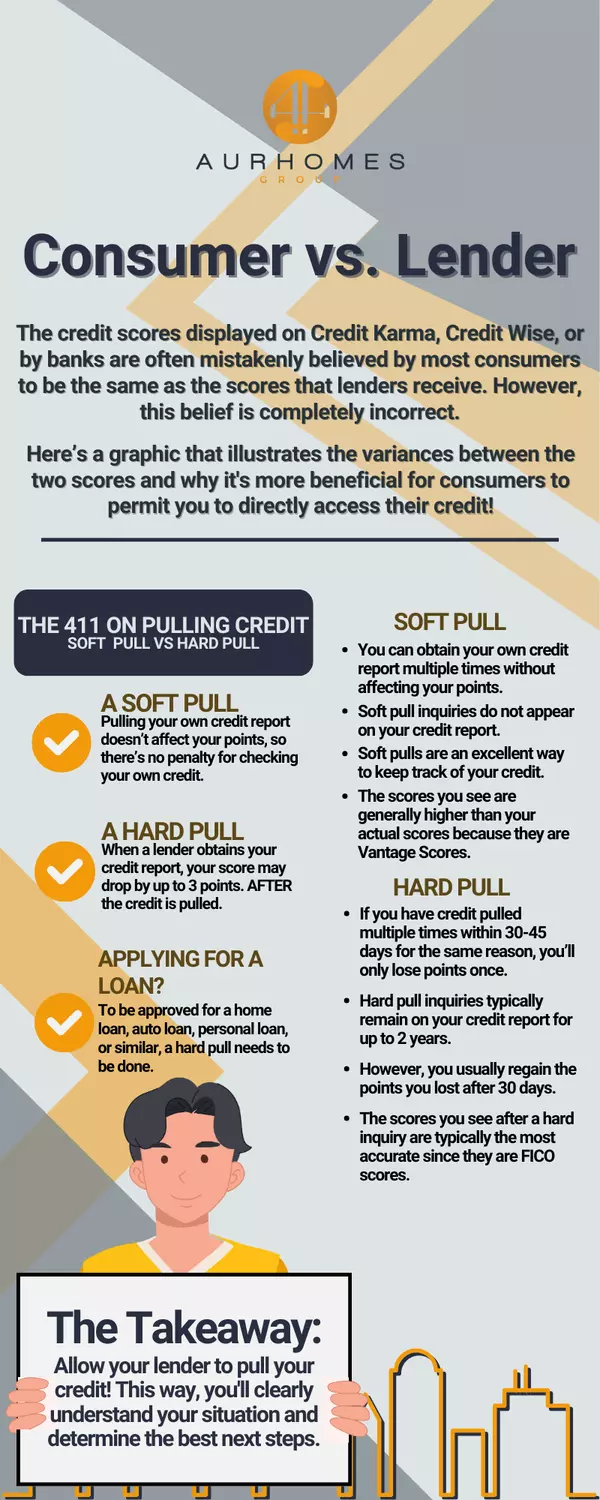
The Best Time To Buy a Home This Year
A shift is underway in the housing market this season. And if you’ve been sitting on the sidelines waiting for the right moment to jump back into your homebuying search, this is a great time to do it. That’s because the best week to buy a home this year is just around the corner. Your sweet spot is here. The experts at Realtor.com study seasonal trends to figure out the ideal week for homebuyers:“Nationally, the best time to buy in 2024 is the week of Sept. 29–Oct. 5. This week historically has shown the best balance of market conditions that favor buyers. Inventory tends to be high, prices are below peak levels, demand is waning, and the pace of the market slows to a more manageable speed.” In addition to the historical trends and typical seasonality that Realtor.com looks at, there are also clear indicators in today’s market data that you’ll see better conditions right now than you would have over the last few years.Mortgage rates just hit their lowest point in 19 months, and that goes a long way to help with your purchasing power and affordability. Andy Walden with Intercontinental Exchange Inc. (ICE) points out:“Recent easing in mortgage rates brought some much-sought relief to prospective homebuyers. Along with a general cooling in home price growth, rates falling below 6.5 percent made August the most affordable month for housing since February.” And Ralph McLaughlin, Senior Economist at Realtor.com, explains that it’s not just rates that have improved – inventory has too: “The number of homes actively for sale continues to be elevated compared with last year, growing by 35.8%, a 10th straight month of growth, and now sits at the highest since May 2020.” That should give you more options. At the same time, sellers now have to compete with each other for your attention. That means they’ll be more likely to negotiate because they know their house will sit on the market longer if they don’t. As Zillow says:“Buyers waiting on the sidelines could find that early fall presents a ‘sweet spot,’ where there’s less competition from other buyers, more motivated sellers and lower interest rates to finance their purchases.” Bottom LineIf you want to make sure you’re ready to take advantage of this sweet spot, let’s connect at Aurhomes Group and start the prep work now. Maybe it’s time to get off the sidelines and into the action.

What To Know About Closing Costs
Now that you’ve decided to buy a home and are ready to make it happen, it’s a good idea to plan for the costs that are a typical part of the home-buying process. And while your down payment is probably the number one expense on your mind, don't forget about closing costs. Here’s what you need to know.What Are Closing Costs?Simply put, your closing costs are the additional fees and payments you have to make at closing. And while they’ll vary based on the price of the home and how it’s being financed, every buyer has these, so they shouldn’t be a surprise. It’s just that some people forget to budget for them. According to Freddie Mac, this part of the home-buying process typically includes: • Application fees• Credit report fees• Loan origination fees• Appraisal fees• Home inspection fees• Title insurance• Homeowners Insurance• Survey fees• Attorney fees Some of these are one-time expenses that are baked into your closing costs. Others, like homeowners’ insurance, are initial installment payments for ongoing responsibilities you’ll have once you take possession of the home.How Much Are Closing Costs? The same Freddie Mac article goes on to say: “Closing costs vary greatly depending on your location and the price of your home. Typically, you should be prepared to pay between 2% and 5% of the home purchase price in closing fees.” With that in mind, here’s how you can get an idea of what you’ll need to budget. Let’s say you find a home you want to purchase at today’s median price of $422,600. Based on the 2-5% Freddie Mac estimate, your closing fees could be between roughly $8,452 and $21,130.But keep in mind, if you’re in the market for a home above or below this price range, your numbers will be higher or lower.Tips To Reduce Your Closing CostsIf you’re wondering if there’s any way to inch that down a little bit, NerdWallet lists a few things that could help: Negotiate with the Seller: Some sellers are willing to cover part or all of these expenses — especially since homes are staying on the market a bit longer now. Sellers may be more motivated to compromise, and you’ll find you have a bit more negotiation power. So don’t hesitate to ask them for concessions like paying for the home inspection or giving you credit toward closing costs. Shop Around for Home Insurance: Since rising home insurance is a challenge in many areas of the country right now, take the time to get a clear picture of all your options. Each insurance company offers its policies and coverage, so get multiple quotes and see how they compare. Choosing a policy that provides reliable coverage at a competitive rate can make a difference. Look into Closing Cost Assistance: Just like there are programs out there to help with your down payment, options exist to get support with closing costs too. While they’ll vary by area, there are programs for various income levels, certain professions, and specific towns or neighborhoods. If you want to learn more, Experian says: “Your real estate professional should be able to steer you toward applicable programs, and the U.S. Department of Housing and Urban Development (HUD) maintains a helpful resource for finding homebuying assistance programs in every state.” Bottom LinePlanning for the fees and payments you'll need to cover when closing on your home is important – and it doesn’t have to be a big surprise. With the right experts on your side, you can make sure you’re prepared. Let’s connect so you have someone you can go to for more tips and advice.

Consumer vs. Lender: Why Your Credit Score from Apps Like Credit Karma Isn't What Lenders See
Many consumers are unaware that the credit scores they see on platforms like Credit Karma or Credit Wise are different from those used by lenders. This common misconception can lead to confusion and missed opportunities. In this blog post, we’ll clarify these differences and show why allowing direct access to your credit report is often the best approach. Check out the graphic below to understand how these scores vary and how it can benefit you. For personalized assistance and to ensure you're getting the most accurate credit information, contact Aurhomes Group today!
Categories
Recent Posts










